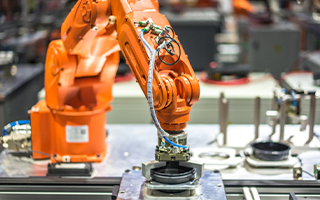What are the Advantages of DevOps for Industrial IoT?

Development and Operation (DevOps) is a software process that emphasizes collaboration between the operation team and the developers, which includes everything from managing the product’s lifecycle to operating and developing new software products.
It is a technology platform that integrates system development, deployment, QA, and testing and provides the companies with the required infrastructure to install DevOps and empower the cross-functional teams to enhance productivity and maintain augmenting reliability and quality of the system.
DevOps today is an automated process that integrates software, tests the product, its deployment, and the infrastructure changes. The main objective of DevOps is to create an atmosphere where developing, testing, and launching software can happen quickly and regularly. DevOps services help promote the methods and procedures for communication and collaborations between development, IT operations, and Quality Assurance (QA).
The Advantages of DevOps for Industrial IoT
Evolution Effect: DevOps is an integral process even in cases where we may not see it immediately as we go for the next phase of evolution from development to deployment. So, the companies that have already embraced it through cross-functional and integrated teams are likely to benefit more than those that haven’t.
Spreading Effect: When the latest version of the software is updated continuously, the systems already connected to that specific server and dependent on that particular software automatically warrant updates- and this helps improve the system’s posture over time.
Suitable Infrastructure: Today, systems are connected to the cloud and the internet. So, it is possible to update and deploy software regularly in various field devices anywhere in the world.
Software-defined: The system functions are defined by the software extended on the hardware. So, in case one needs to modify the functions, they just need to update the software without the need for electrical and mechanical changes.
Revenue streams and new business models: The major goal of IIoT services is to transform business models and plans into reality. DevOps provides a way to constantly deliver software updates to sell the services that can help generate revenue rather than selling one-time products.
Cost-efficiency and better productivity: A process that enhances the development cycle without compromising on quality is always a better option. This is achieved in smarter, faster, and better ways using DevOps to reduce the cost of production.
DevOps services have evolved significantly in the past few years. DevOps is no longer limited to enterprise systems and has reached all IoT devices and technologies. It is very exciting and challenging at the same time for the IoT app and device developers under huge pressure to develop quality solutions to meet public demand and expectations. The Internet of Things and its uses will continue to be discovered for many years, and therefore DevOps will continue to have a significant role to play. Businesses that have adopted DevOps will gain an advantage over other companies and may even be able to create clear differentiation between themselves and their competition.
Using an automated and well-designed DevOps toolchain can streamline security performance and other testing procedures that get difficult to manage when done manually. DevOps services can deal with complicated processes, such as gathering and studying data from a few hundred devices, updating them, using their inputs to support decision making, and more, with a lot more ease and precision.
DevOps in the industrial IT context also improves the overall security, efficiency, and stability while reducing the aggregate cost of operation and deployment. DevOps provides innovation and collaboration, which helps in scaling operations faster. The elasticity and scalability that DevOps offers are the prerequisite for maintaining and deploying complex ecosystems of firmware, gateways, IoT agents, and algorithms.
An integrated approach in such cases allows cross-functional collaboration in a vertical channel. Internet of Things devices and applications will have a lifecycle past “break, fix, deploy and delete.”
With DevOps, the operation and software development process is beginning to disappear along with the organizational line that separates the system operators from the system developers. DevOps has already proved its impact at the enterprise level and is now further growing towards edge devices and gateways to meet the development challenges and manage the Internet of Things devices, apps, and systems, aiming to enhance efficiency and generate better results.
For more details on DevOps implementation in the IoT context, please take a look here.


















